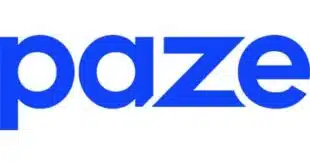Some 1,000 Coca-Cola vending machines in Philadelphia will be equipped with contactless-payment technology over the next four weeks, and will all be accepting contactless tokens for payment by the end of July, according to USA Technologies Inc., the Malvern, Pa.-based company whose e-Port radio-frequency device is being used with the machines. USA Technologies, MasterCard International, and The Philadelphia Coca-Cola Bottling Co., the local bottler that operates the machines, will be watching the deployment to see whether it can build a case for contactless card acceptance in an industry whose 8 million vending machines generate $45 billion annually in cash transactions. “This is the largest all-cash business in America,” says George R. Jensen, chairman and chief executive of USA Technologies. So far, the deployment is the largest use of contactless payments in vending machines in the U.S. Even conventional mag-stripe card acceptance remains relatively uncommon in vending, largely owing to the share of sales consumed by credit card discount fees. Most vending transactions run well under $5, and only about 25% of U.S. machines sell items priced $1 or higher, according to USA Technologies (Digital Transactions News, June 16). Indeed, only an estimated 5,500 machines currently take cards. Contactless technology could change that. Jensen, whose company has processed contactless transactions at about 200 machines in Atlanta and New York since last fall, says the technology's so-called wave-and-go feature appeals to consumers. At the same time, Jensen says card transactions on the Atlanta and New York machines averaged 50% higher than cash sales. He points out that when bill acceptors were introduced in the 1980s, operators saw a 20% ticket lift, and before long most machines in the country had one. This effect may allow operators to raise prices, something they sorely need to do, says Jensen, because of a long-term cost squeeze. “Operators have to find a way to lift their prices because they're being pinched,” he notes. “They're behind the curve in terms of pricing.” Up to now, Jensen says, they've been reluctant to hike prices, fearing sales would drop. But, “with credit card sales, that does not happen,” he says. In the Philadelphia deployment, MasterCard, whose PayPass contactless platform is being used, is paying for the e-Port card-acceptance device for each Coke machine, Jensen says, at a cost of $400 each. The device, which reads both mag-stripe and contactless transactions, lists for $400 to $500. USA Technologies' transaction fee is 5%. In contactless transactions, an inlay embedded in a card, which includes a chip and antenna, sends card-account data by radio wave to a point-of-sale transceiver. From that point the transaction proceeds as if the card had been swiped. MasterCard and American Express Co. have tested contactless technology extensively and have found it to be faster than conventional card transactions, making the technology appealing to high-volume, low-ticket merchants. Visa USA introduced its own contactless platform last year. Visa and MasterCard waive their signature requirements on contactless transactions under $25, which also speeds up tender time.
Check Also
Cyber Weekend Sales up 5.7%, Fiserv Says and other Digital Transactions News briefs from 12/6/24
Same-store sales volume rose 5.7% and transactions were up 6.7% during the days from Nov. …



